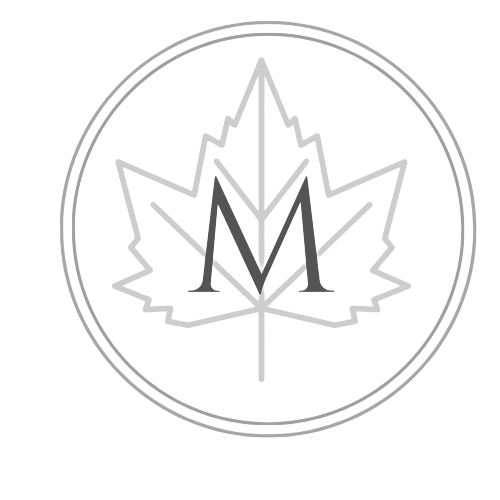
Maple Speech & Language Services
Providing service both in clinic and at home
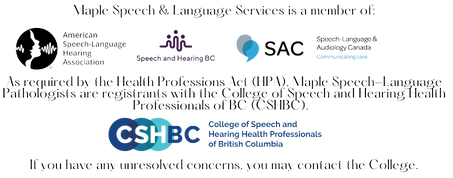

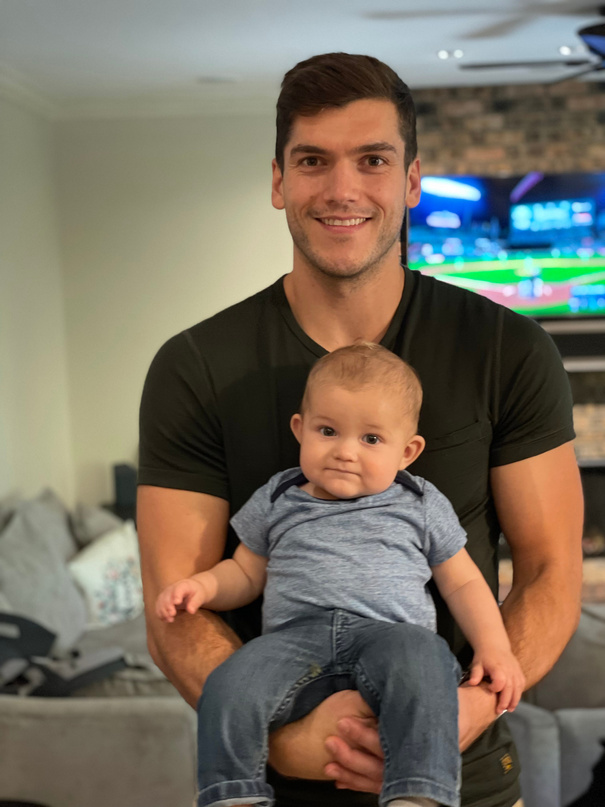
About Us
I am a registered Speech-Language Pathologist and the director of Maple Speech & Language Services. I received my Bachelors of Science from Thompson Rivers University and my Masters in Speech & Language Pathology from Western University. I have since returned back to British Columbia and worked for a variety of private practices. I am passionate about working with individuals with a variety of communication needs.
I am a Registered Autism Service Provider (RASP), certified in Hanen- More than Words, and have completed courses in Natural Language Acquisition/Gestalt Language Processing, and AAC (Augmentative & Alternative Communication).
When I'm not working I love playing sports, being outdoors, and spending time with family and friends!
Graham Stoliker
Katrina received her Master of Science in Speech-Language Pathology from the University of British Columbia. She is a registered SLP in good standing with the College of Speech and Hearing Professionals of BC (CSHBC).
Katrina enjoys the collaborative process in her role as an SLP and firmly believes that speech therapy should empower individuals, celebrate their unique needs, and prioritize their goals!
Since 2018, Katrina has been practicing in a wide variety of clinical settings, including acute care, inpatient and outpatient neurorehabilitation, and in private practice. When not at Maple Speech & Language Services, Katrina also works at BC Children’s Hospital. She has spent much of her career working with adults and children with acquired neurogenic injury and neurodegenerative conditions, and has experience working on a cleft palate and craniofacial disorders team. Katrina is a clinical faculty member with UBC.
In her free time, Katrina enjoys oil painting, travelling, and learning how to sing!
Katrina Reyes
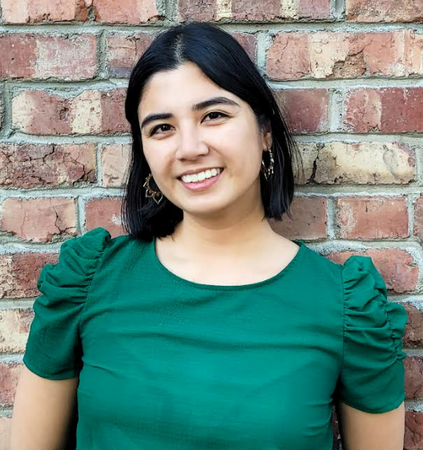
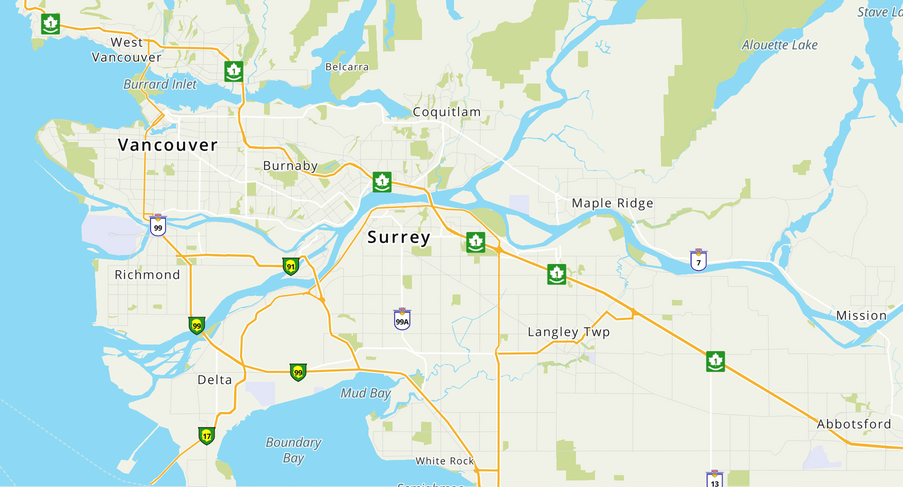
Services Provided
- Articulation
- Speech sound disorders
- Motor speech disorders
- Augmentative & Alternative Communication (AAC)
- Delayed Language
- Apraxia of Speech
- Autism Spectrum Disorder (ASD)
- Non-verbal communication
- Social communication/pragmatic language
- Stuttering/fluency
- Literacy (Reading, writing, spelling, etc.)
- Parent/school/daycare consultations/IEP meetings
- Cognitive/executive functioning skills
Maple Speech & Language Services is a private practice providing both in clinic & at home services.
We rent clinic space from This World Is Ours Centre, located at 191 East 10th Avenue, Vancouver, BC, V5T 1Z2
We provide in-home services in Vancouver, Richmond, Burnaby, Surrey, Delta, New Westminster, and the Tri-cities
Contact us
Phone: 778-554-1019
Email: Graham@maplespeech.com
Join our waitlist here!
Find us on Instagram!
Frequently Asked Questions
What is the difference between speech and language?
Speech refers to the physical production of sounds using the vocal organs, while language encompasses the broader system of communication that includes rules, symbols, and structures for conveying meaning. Speech is the act of making sounds, while language involves vocabulary, grammar, syntax, semantics, and pragmatics. While speech is a component of language, language can be conveyed through other modalities such as writing or sign language.
What are typical Speech and Language milestones?
Speech and language development in toddlers can vary, but there are typical milestones that can serve as general guidelines. Here are some common speech and language milestones for toddlers:
- Babbling (6-8 months): Around this age, babies begin producing repetitive syllables like "ba-ba" or "ma-ma."
- First words (12-18 months): Toddlers usually start saying their first recognizable words, such as "mama," "dada," or the names of familiar objects or people.
- Vocabulary expansion (18-24 months): By 18 months, toddlers may have a vocabulary of about 50 words, which rapidly increases to 150-200 or more by 24 months. They begin to combine words and use simple phrases.
- Two-word phrases (24-30 months): Toddlers start combining two words to express basic phrases like "more milk" or "big dog." They also start to use pronouns (e.g., "I," "me," "you").
- Understanding simple instructions (24-36 months): Toddlers begin to understand and follow simple instructions, such as "pick up the toy" or "come here."
- Vocabulary growth and sentence development (36-48 months): Toddlers' vocabulary continues to expand rapidly, reaching hundreds of words by the age of three. They start forming longer sentences with more grammatical complexity.
- Storytelling and conversations (48+ months): By four years old, toddlers can engage in simple storytelling and have basic conversations with others. They use more complex sentence structures and demonstrate improved communication skills.
My child isn't talking- when should I start speech therapy?
Speech therapy should be sought if there are concerns about a child's speech and language development. Seek assessment if there is a lack of babbling or limited vocalizations by 12 months. Absence of understandable words by 18 months or difficulty combining words into phrases by 24 months may also warrant intervention. Limited social interaction, persistent articulation errors, or challenges understanding and following instructions are additional indicators. Each child develops differently, so it's important to consult a pediatrician or speech-language pathologist for a comprehensive evaluation. They can determine if speech therapy is needed and provide appropriate guidance to support the child's communication skills.
Are there any funding sources available for speech and language therapy?
In British Columbia, Canada, there are several funding sources available for individuals with autism. Here are some of the main sources:
- Ministry of Children and Family Development (MCFD): The MCFD provides funding and support for children and youth with autism through programs such as the Autism Funding Program. This program offers funding for eligible services, including behaviour intervention, speech-language pathology, occupational therapy, and social support.
- Autism Funding Unit (AFU): The AFU is a part of the Ministry of Children and Family Development and administers the Autism Funding Program. They provide funding directly to families to help cover the costs of eligible autism-related interventions and services.
- At Home Program: The At Home Program, also offered by the MCFD, provides funding and support for families of children and youth with autism who require significant interventions at home. It assists with funding for behaviour intervention, respite care, and specialized equipment.
- Provincial and Federal Disability Tax Credits: Individuals with autism may be eligible for the disability tax credit at the provincial and federal levels. This tax credit can provide financial benefits to individuals with disabilities and their families.
- Charitable Organizations and Nonprofits: Various charitable organizations and nonprofits in British Columbia may offer grants, scholarships, or funding programs specifically for individuals with autism. Examples include Autism Speaks Canada, ACT - Autism Community Training, and the Pacific Autism Family Network (PAFN).
It's important to note that the availability and eligibility criteria for funding programs may vary, so it is recommended to reach out to the respective organizations or government agencies directly to obtain accurate and up-to-date information regarding the funding sources and application processes.
For Children without a diagnosis, private insurance may cover the cost of speech and language therapy services. Check in with your insurance provider to learn more.
What is the cost?
Our rates are $160/hour for in-home services, which includes the cost of our travel. For in-clinic sessions, we charge $170/hour, which includes the cost of the clinic rental fee. Hour long sessions include 50 minutes of direct therapy time, and 10 minutes for documentation.
Do you directly bill for extended health plans?
No, we do not bill directly to agencies. You will need to reach out to your extended health provider to be reimbursed.
How long is an assessment?
Assessment sessions can vary greatly depending on the communication concern being assessed and the participation of the individual. Speech assessments are typically completed in 1-2 hours, while language assessments are often longer, and up to 3 hours. All language assessments look at the individuals receptive language (comprehension of language) and expressive language (the language they produce). Most assessments lasting over an hour are completed across multiple sessions.
Do you provide contracting services for schools, developmental centres, daycare, etc.?
Yes! We are happy to provide services as needed in any setting! Please reach out to Graham at graham@maplespeech.com to discuss further.
